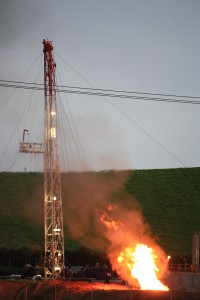The Parliamentary Commissioner for the Environment published her second and final report on oil and gas in June 2014. Dr Wright’s investigation upheld public concerns relating to regulation of these industries. The PCE made several recommendations including a national policy statement, local government review; public involvement in decision-making; and pro-active provision of information.

Presently oil and gas activities are regulated by several Acts. These include the Crown Minerals Act 1991; the Resource Management Act 1991; the Health and Safety Act 1992; the Hazardous Substances and New Organisms Act 1996; and the Petroleum Regulations Act 2013.
Exploration and extraction permits are allocated by central government through the Crown Minerals Act. Oil and gas companies apply for permits through an annual ‘Block Offer’ process. Thousands of hectares have been awarded in the 2015 block offer with thousands more offered in 2016 .
Oil and gas companies can explore and extract anywhere within the permit areas. At a local government level the regional councils are responsible for issuing resource consents for oil and gas activities relating to discharge to air, land and water. The district councils have responsibility for land use consents relating to noise, light, transport and hazardous substances effects.
The Companies must have access arrangements with land owners or occupiers to conduct seismic surveys and for drilling and production on private property. Property owners have the right to seek legal advice at the cost of the applicant (oil and gas company) when deciding whether or not to allow access. It is advisable to discuss these matters with banks and insurance companies as these activities may affect mortgage and insurance responsibilities.
